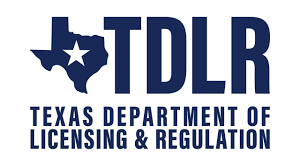
Agency urges qualified individuals to become a licensed Registered Accessibility Specialist
AUSTIN – As the state grows, and businesses build or renovate commercial facilities, the need for Registered Accessibility Specialists also grows.
Registered Accessibility Specialists (also known as RASes) review and inspect those construction projects to ensure that the projects are designed and constructed to comply with the Texas Accessibility Standards, which eliminates unnecessary architectural barriers encountered by persons with disabilities.
Although 20,000+ construction projects are registered statewide each year with the Texas Department of Licensing and Regulation (TDLR), only 564 people are licensed in Texas to review and inspect those projects to ensure that the projects are designed and constructed to comply with the Texas Accessibility Standards.
All publicly funded, commercial facility, and public accommodation construction projects subject to the Texas Architectural Barriers Act must comply with the Texas Accessibility Standards. Projects with an estimated cost of $50,000 or more have the additional requirement of registration, review, and inspection by a RAS.
RASes may work as consultants in architecture firms, work for inspection companies, or work as independent contractors. They are usually interested in safety for persons with disabilities, the ongoing need to eliminate unnecessary architectural barriers encountered by persons with disabilities and want to improve the overall quality of construction in general.
This month as we celebrate the 34th anniversary of the ADA, TDLR urges qualified individuals to consider becoming a RAS to help build Texas and ensure the state remains accessible for all. If you or someone you know may be interested in becoming a RAS, consider these options:
Here are three paths to becoming a RAS:
- Option 1: Degree (architecture, engineering, interior design, landscape architecture, or equivalent) and one year of experience related to building inspection, building planning, accessibility design, or review, or equivalent.
- Option 2: Eight years of experience related to building inspection, building planning, accessibility design, review, or equivalent.
- Option 3: Certification as an accessibility specialist granted by a model building code organization and four years of experience related to building inspection, building planning, accessibility design, review, or equivalent.
All three paths require passing a written examination covering the Texas Accessibility Standards and other information related to the Elimination of Architectural Barriers program. Learn more about becoming a RAS: https://www.tdlr.texas.gov/ab/ab.htm.

